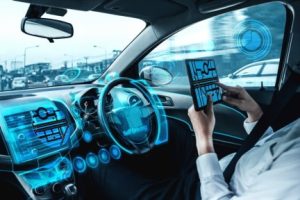Electric scooters, commonly referred to as e-scooters, have been in the news lately. For example, the First Minister of Scotland, Nicola Sturgeon, was photographed riding an e-scooter illegally, but the police decided to take no action. On the other hand, a man in Oxford was fined £880 after riding an e-scooter without a number plate. Consequently, it is no surprise that many people are confused about the legality of e-scooters in the UK as a whole.
There are also serious concerns about the safety of motorists and pedestrians, with e-scooter numbers increasing significantly. In the event of a motoring accident, the victim would typically pursue compensation from the defendant’s insurance company. However, what is the insurance position regarding e-scooters?
Eco-friendly travel
It is fair to say that the authorities seem to have been caught off-guard by the sudden and continued popularity of electric scooters. Initially, they tended to be used by young children going to school, but now we have delivery companies using this eco-friendly mode of transport. On paper, e-scooters seem to be the perfect solution to environmentally friendly travel with reduced emissions. These devices are lightweight, compact, easy to charge, and the batteries are highly efficient. So, where do they stand from a legal standpoint?
Powered Light Electric Vehicles (PLEVs)
In years to come, you will come across the term PLEVs. This covers an array of “powered transporters” such as electric scooters, Segways, hoverboards, powered unicycles, and u-wheels. PLEVs come under the Road Traffic Act (RTA) 1988, similar to motor vehicles from a legal perspective. Consequently, to comply with this legislation, PLEVs need:-
- Road tax
- MOT
- Licensed
- Lighting
- Number plates
- Signalling capabilities
In reality, this legislation means that e-scooters cannot be used on the roads. The obvious alternative is to use them off-road. Unfortunately, as they are motor-powered vehicles, they cannot be used on pavements or space set aside for pedestrians, cyclists and horse riders. These restrictions are part of the Highway Act 1835 and only leave private land (with the landowner’s permission) as legitimate areas of use.
UK government e-scooter trial
The UK government has backed itself into a corner when it comes to e-scooters. Consumers, businesses and politicians are crying out for more eco-friendly policies. In theory, an e-scooter seems to tick many of these boxes. Consequently, there are currently numerous trials being undertaken across the UK. As you might have guessed, several restrictions apply to the use of e-scooters in these trials:-
- All e-scooters must be rented from an approved organisation in each trial area
- The rider must have a full/provisional UK driving licence
- The rental organisation must insure each e-scooter
As ever, the government has been criticised for its relatively slow response to the growing problem of e-scooters and injuries to pedestrians and motorists. So, where do you stand if an e-scooter injures you?
Claiming compensation for electric scooter accidents
Many people will be surprised to learn that the process for claiming compensation as a consequence of an injury caused by an electric scooter is essentially just the same as any other personal injury claim. Many people, however, automatically assume that a lack of insurance means it is not worth pursuing personal injury compensation. This isn’t the case, so you should follow the standard process:-
- Gather evidence to support your claim
- Ask witnesses if they’re willing to provide contact information
- Collate medical information
- Write a detailed account of the accident
The next step is to approach a personal injury solicitor and ask them to look at your claim. If they should conclude you have a decent chance of success, they would likely offer a no-win, no-fee arrangement. In this scenario, they would agree to pursue your e-scooter personal injury claim at no direct cost to you.
Who are you suing?
This is where it starts to get very interesting as the vast majority of those driving e-scooters are uninsured. However, if we take a step backwards and look at the situation involving other motorised vehicles, everything becomes a little clearer.
The Motor Insurers Bureau (MIB) is a body funded by the insurance industry to compensate those injured by uninsured drivers. As e-scooters are classed as motorised vehicles and come under the same regulations as cars, the MIB can payout compensation where the driver of the e-scooter wasn’t insured or unable to be traced. We can only imagine how many victims have decided not to pursue compensation because the individual in control of the e-scooter was not insured.
Do e-scooter riders have any rights if injured by a third party?
Understandably, many people assume that e-scooter riders injured by third parties such as motorists have no rights. If they were driving the vehicle illegally, then surely there is no case to answer? Wrong.
Every motorist and pedestrian has a duty of care to one another. If they fail to uphold this duty, they are potentially putting others at risk due to their negligence. If you can prove negligence, even if you were riding your e-scooter illegally, there is every chance that you could claim compensation. Whether the level of compensation awarded would be reduced as a consequence of illegally riding the e-scooter would be down to the courts.
Conclusion
The consensus amongst the public, and the legal standing of e-scooters, are at polar ends of the spectrum. While the UK government has agreed to undertake several trials across the country, it will need a wide-ranging advertising campaign to ensure that everyone is singing from the same “hymn sheet”. Those injured as a consequence of e-scooter accidents can claim compensation even if the defendant has no insurance. Even e-scooter riders have rights if they are injured as a consequence of negligence by other parties. Confused?
It is all good and well carrying out various trials, but it is more important to educate the public and those who own e-scooters. Unfortunately, this is a problem which is not going to go away anytime fast!



